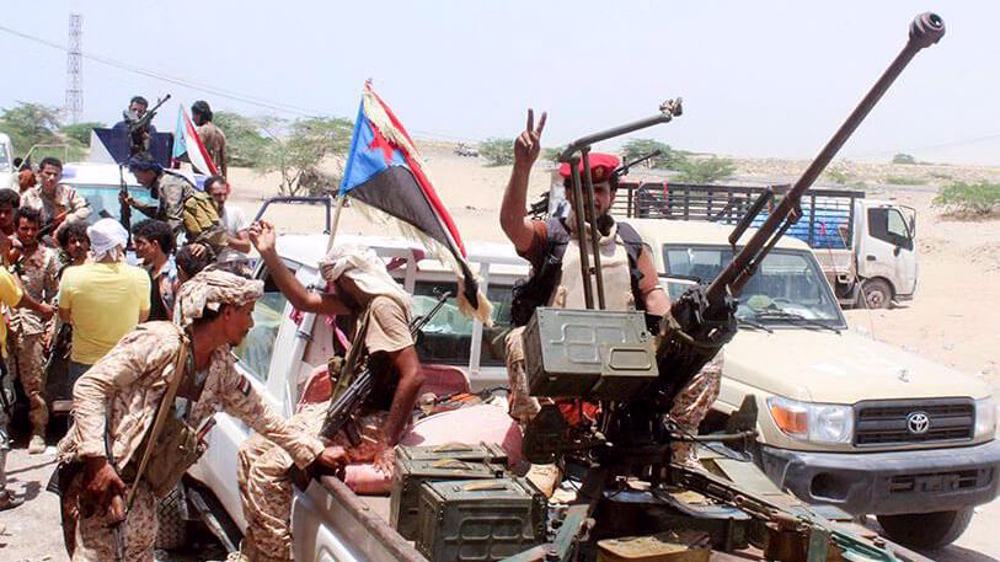Alwaght- The UAE-backed Yemeni militant group, Southern Transitional Council (STC), has withdrawn from talks over a power-sharing deal brokered by Saudi Arabia with rival Saudi-backed militiamen linked to former president, Abd Rabbuh Mansur Hadi.
The STC said in a statement that it had sent a letter to Saudi authorities confirming “the suspension of its participation in the ongoing consultations to implement the agreement” struck in Riyadh last November.
The so-called Riyadh agreement and was designed to end a long-running rivalry between the Saudi-supported militants and the UAE-backed southern separatists.
But the deal was never implemented, and fierce fighting swept across southern Yemen and the Socotra archipelago after STC forces declared self-rule and seized control of Aden in April.
In June, Riyadh made a new attempt to revive the agreement and brought back the two warring sides to the negotiating table.
Yemen’s southern separatists further said on Wednesday that their decision to pull out of those talks was due to ongoing military escalation in the flashpoint southern province of Abyan and the other side’s violation of an agreed ceasefire.
Moreover, they complained about the failure to pay public sector salaries and a collapse of services in southern Yemen.
Saudi-sponsored and UAE-backed Yemeni militants had agreed in June to accelerate the implementation of Riyadh agreement, continue to observe the ceasefire which came into effect on June 22, and reject STC’s self-administration.
They also reached an agreement on the formation of a unity government within 30 days and the appointment of a new governor and security director for the regional capital Aden.
The standoff between Saudi-sponsored and UAE-backed militants in Yemen has threatened to shatter the coalition involved in a devastating military campaign against the impoverished Arab country.
Saudi Arabia and a number of its regional allies launched the campaign against Yemen in March 2015, with the goal of bringing Hadi’s government back to power.
The US-based Armed Conflict Location and Event Data Project (ACLED), a nonprofit conflict-research organization, estimates that the war has claimed more than 100,000 lives for more than the past five years.
The Saudi regime has, however, failed to fulfill the objective of its deadly campaign.
The war has also taken a heavy toll on the country’s infrastructure, destroying hospitals, schools, and factories. The UN says over 24 million Yemenis are in dire need of humanitarian aid, including 10 million suffering from extreme levels of hunger.



























